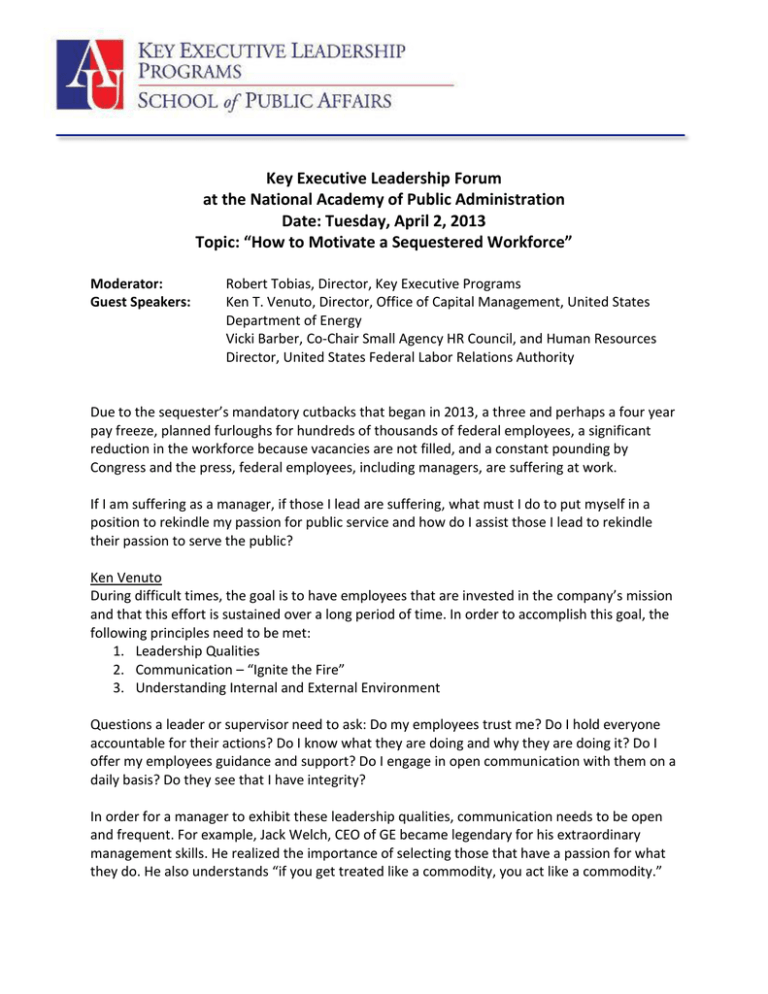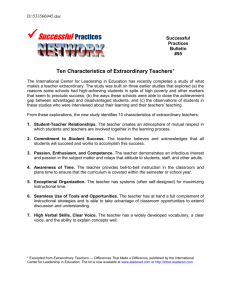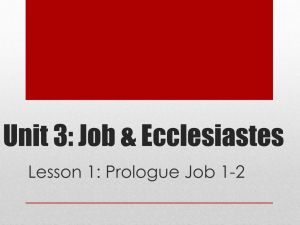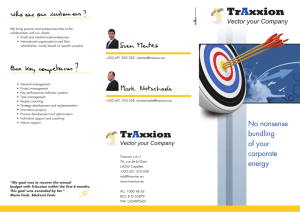Key Executive Leadership Forum at the National Academy of Public Administration
advertisement

Key Executive Leadership Forum at the National Academy of Public Administration Date: Tuesday, April 2, 2013 Topic: “How to Motivate a Sequestered Workforce” Moderator: Guest Speakers: Robert Tobias, Director, Key Executive Programs Ken T. Venuto, Director, Office of Capital Management, United States Department of Energy Vicki Barber, Co-Chair Small Agency HR Council, and Human Resources Director, United States Federal Labor Relations Authority Due to the sequester’s mandatory cutbacks that began in 2013, a three and perhaps a four year pay freeze, planned furloughs for hundreds of thousands of federal employees, a significant reduction in the workforce because vacancies are not filled, and a constant pounding by Congress and the press, federal employees, including managers, are suffering at work. If I am suffering as a manager, if those I lead are suffering, what must I do to put myself in a position to rekindle my passion for public service and how do I assist those I lead to rekindle their passion to serve the public? Ken Venuto During difficult times, the goal is to have employees that are invested in the company’s mission and that this effort is sustained over a long period of time. In order to accomplish this goal, the following principles need to be met: 1. Leadership Qualities 2. Communication – “Ignite the Fire” 3. Understanding Internal and External Environment Questions a leader or supervisor need to ask: Do my employees trust me? Do I hold everyone accountable for their actions? Do I know what they are doing and why they are doing it? Do I offer my employees guidance and support? Do I engage in open communication with them on a daily basis? Do they see that I have integrity? In order for a manager to exhibit these leadership qualities, communication needs to be open and frequent. For example, Jack Welch, CEO of GE became legendary for his extraordinary management skills. He realized the importance of selecting those that have a passion for what they do. He also understands “if you get treated like a commodity, you act like a commodity.” Mr. Venuto compared workplaces to major sports teams. Even the teams with the best athletes don’t always win championships. It is the team with the best teamwork skills that come out on top because they understand how their roles support the team as a whole. Employees should be treated like adults. They are educated and are aware of the budget cuts. Therefore, it is best to provide them with information when warranted and to communicate during uncertain times, even if there is no definite answer. It is important to know the morale of your employees and to connect with them. Having this knowledge is crucial to incorporating effective planning alternatives and communication strategies. In conclusion, the most important lesson to take away from this is to lead with integrity and trust. Being an extraordinary leader requires persistence and diligence. It is no easy task. This is something that needs to be done every day. When faced with adversity, it is important to find opportunities that will keep employees motivated. Vicki Barber The following challenges arise when faced with adversity in the workplace: 1. Morale tends to decline 2. Employees less motivated to go above and beyond 3. Environmental uncertainty 4. Employees struggle to do more with less both personally and professionally 5. Critical moment for leadership engagement In order for manager to move forward, leaders need to be open to hearing new ideas from their employees. A flexible work schedule, partnerships with other agencies, workshops that focus on technical and management skills, and new projects to enhance teamwork skills are all alternative methods of providing a successful environment during difficult times. Please see attached PowerPoint presentation.



